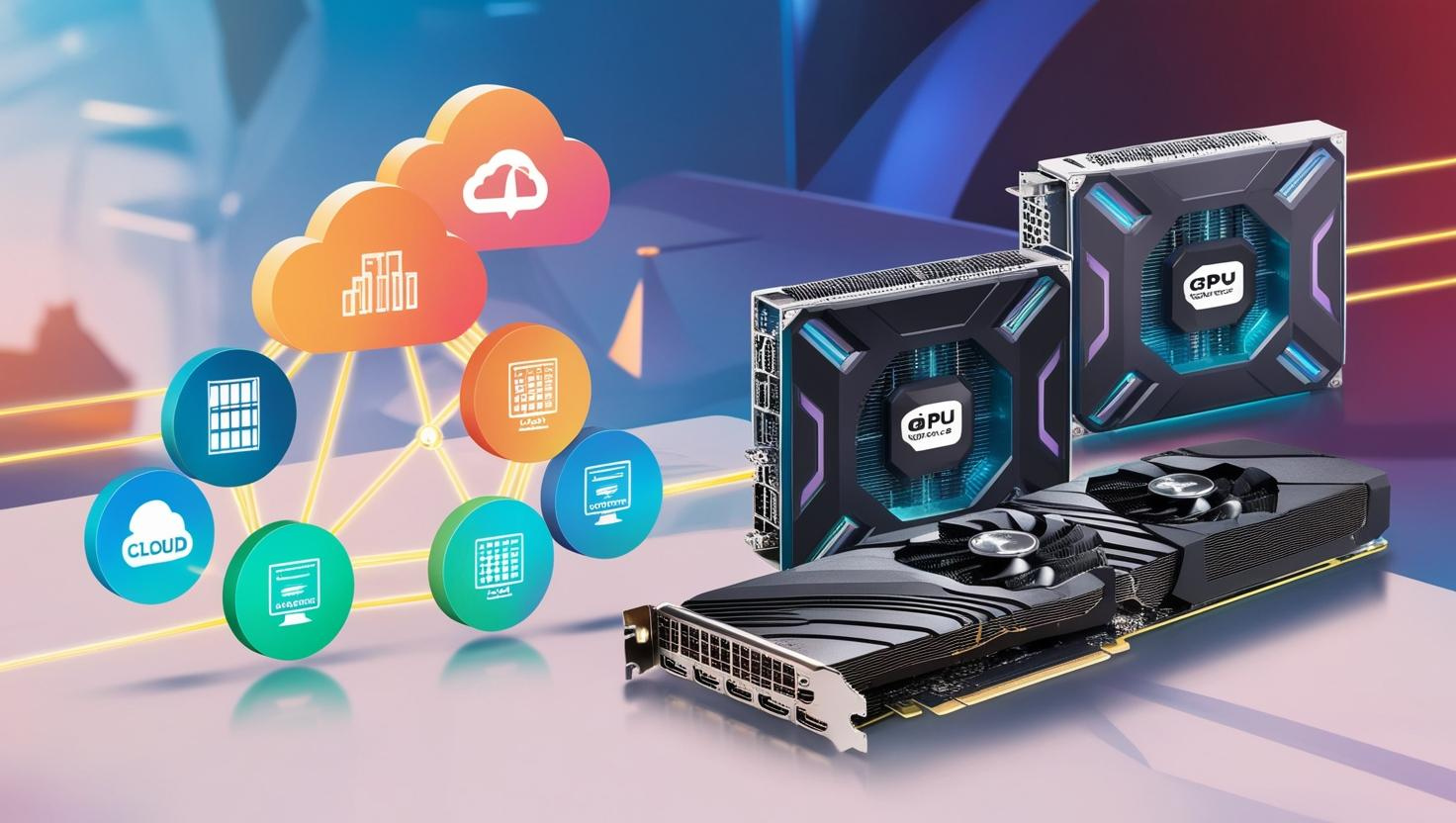Cloud GPU - Report
Cloud Providers Turn to Custom Chips Amidst GPU Scarcity
 Quest Lab Team
Quest Lab Team
The increasing demand for Graphics Processing Units (GPUs), fueled by the rapid advancements and adoption of artificial intelligence (AI) and machine learning (ML), has created a significant shortage in the global GPU market. This scarcity has pushed major cloud providers such as Amazon Web Services (AWS), Google Cloud, and Microsoft Azure to explore innovative solutions to meet the burgeoning demand for computing power. One prominent strategy involves developing custom-designed chips tailored for specific workloads. This approach not only helps mitigate the GPU shortage but also offers substantial advantages in terms of performance, efficiency, and security.
The Current GPU Field
The current demand for GPUs significantly outstrips the available supply, with lead times for the latest GPUs extending up to 12 months due to the overwhelming requirements of AI-driven applications. This situation has compelled cloud service providers to rethink their strategies for delivering robust and reliable computing power to their customers.
Advantages of Custom Chips
Custom chips, designed to optimize performance for specific tasks, offer several key advantages over traditional GPUs:
- Cost Efficiency: Custom chips can be more cost-effective to produce and deploy compared to high-end GPUs, offering a better price-to-performance ratio.
- Energy Efficiency: Custom chips generally consume less power and require less cooling infrastructure, directly addressing the operational costs associated with running large data centers.
- Tailored Performance: By being optimized for particular workloads such as AI training or inference, custom chips can achieve significantly improved processing speeds and reduced latency.
Key Players and Their Custom Chip Strategies
Microsoft
Although a relative newcomer to the custom chip arena compared to AWS and Google, Microsoft has made notable strides in custom silicon development, particularly for its Azure cloud platform. At its Ignite conference in late November 2024, Microsoft unveiled two new chips:
- Azure Boost DPU: Designed specifically for data processing tasks, this chip operates on a custom lightweight operating system optimized for efficient data flow.
- Azure Integrated HSM: This hardware security module focuses on encryption tasks, minimizing latency and improving scalability.
Furthermore, Microsoft is investing heavily in infrastructure improvements, introducing liquid-cooling solutions and advanced rack designs to enable a greater density of AI accelerators within its data centers.
Amazon Web Services (AWS)
AWS has been at the forefront of custom chip development, with its Trainium and Inferentia processors specifically designed to handle demanding AI workloads. The upcoming Graviton4 CPU aims to deliver enhanced general-purpose computing capabilities, while the new Trainium2 is projected to offer four times the compute power of its predecessor . AWS's approach emphasizes flexibility and cost-effectiveness, aligning with customer needs for high-performance computing at lower costs.
Google Cloud
Google has a long history of pioneering custom silicon, beginning with its Tensor Processing Units (TPUs) introduced in 2016. The latest iteration, the Cloud TPU v5p, is reported to train models 2.8 times faster than previous versions . Additionally, Google is poised to launch its first Arm-based CPUs, called Axion Processors, further expanding its custom chip portfolio .
The Crucial Role of Security
Security is a paramount concern in cloud computing, and custom silicon plays a vital role in enhancing security measures. Microsoft’s Azure Integrated HSM provides dedicated hardware for encryption tasks, reducing potential attack vectors while improving performance. Similarly, AWS’s Nitro system strengthens security by preventing unauthorized firmware modifications, while Google’s Titan chip establishes a secure root of trust within systems.
Future Trends and Predictions
The trend toward custom silicon adoption is expected to accelerate as cloud providers seek to differentiate themselves in an increasingly competitive market. Industry analysts predict continued investment in custom chips by hyperscalers, not solely to address current shortages, but also to enhance their service offerings and potentially reduce reliance on third-party vendors.
The landscape is set for significant transformation with ongoing advancements in chip technology. Major players like Nvidia and Intel are ramping up production of their own AI-focused processors. Nvidia’s upcoming Blackwell GPUs promise substantial improvements in performance and energy efficiency, while Intel’s Gaudi 3 aims to compete directly with Nvidia’s offerings by providing faster model training capabilities .
Conclusion
The shift towards custom chips among cloud providers is a strategic response to the prevailing GPU shortages and a proactive step towards enhancing performance, efficiency, and security across various computing tasks. As Microsoft, AWS, and Google continue to innovate in this domain, we can anticipate a new era of cloud computing characterized by:
- Greater efficiency
- Tailored performance solutions
- Robust security measures

Quest Lab Writer Team
This article was made live by Quest Lab Team of writers and expertise in field of searching and exploring
rich technological content on cloud computing and its future with its impact on the modern world



